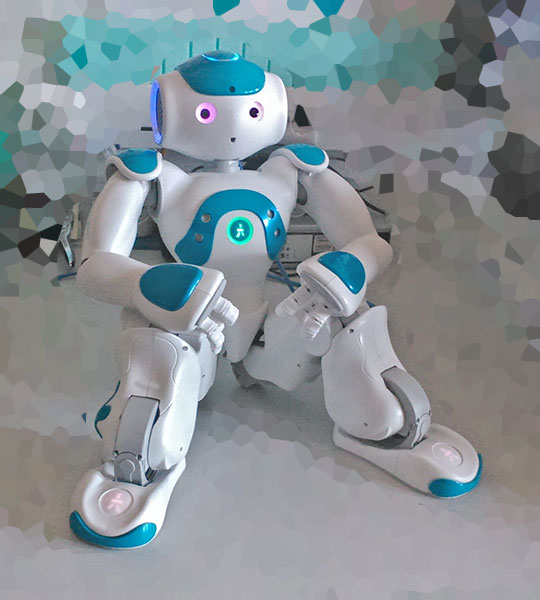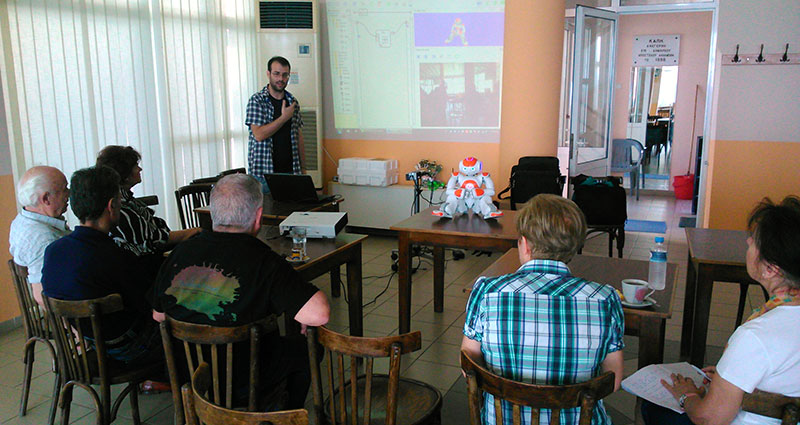
About the project
RAPP is a 3-year project (2013-2016) that will provide an open source software platform to support the creation and delivery of Robotic Applications (RApps), which, in turn, are expected to increase the versatility and utility of robots. The emphasis of this project will be on applications that will enable robots to understand and respond to the intentions and needs of people at risk of exclusion, especially the elderly.
OADC Contribution
As a social partner with technical background, ORMYLIA leads definition of User Requirements and Specifications of the RAPP platform, including the definition of Key Performance Indicators. ORMYLIA will also design and develop the Robotic Application for technology illiterate people, being RAPP second Pilot partner with MATIA.
The NAO robot is being tested at ORMYLIA in Greece, who provided the use case requirements and described the pilot scenarios regarding the technology illiterate elders and people with mild cognitive impairment.
Why RAPP ?
Our societies undergo a dramatic demographic change as the number of elderly and people requiring support in their daily life is steadily increasing. On a different front, the digital revolution creates scores of technologically illiterate people, mostly middle-aged and elderly, who are excluded from a vast array of electronic services and benefits. Socially interactive robots can help families and caregivers, by physically assisting people and functioning as a companion. Robots may also adopt the role of a friendly tutor for people who want to partake in the electronic feast and they don’t know where to start. The increasing sales figures of robots point towards a trend break for robotics.
To lower costs for developers and increase their interest in developing robotic applications, RAPP, a new research project funded by the European Commission through its FP7 programme, introduces the idea of robots as platforms.


